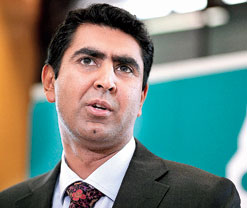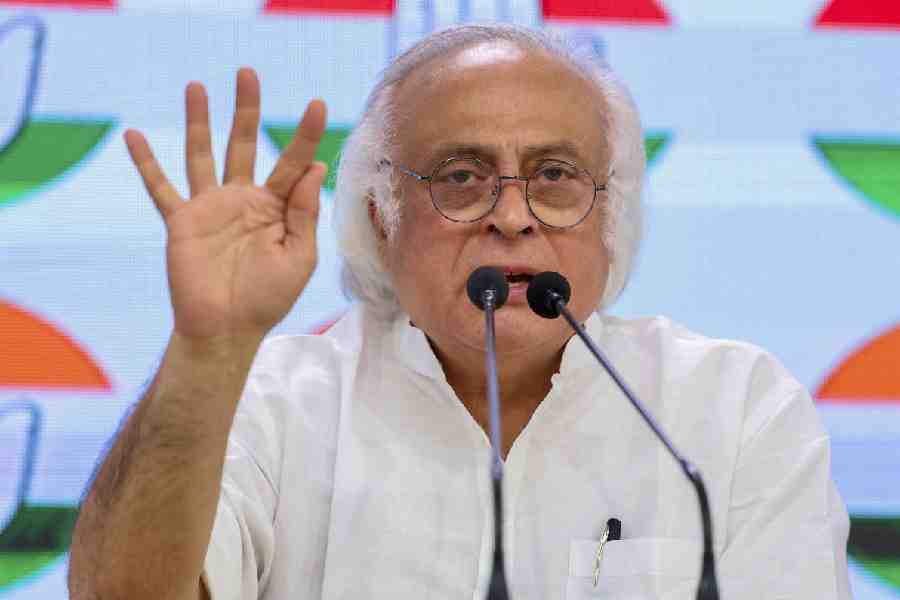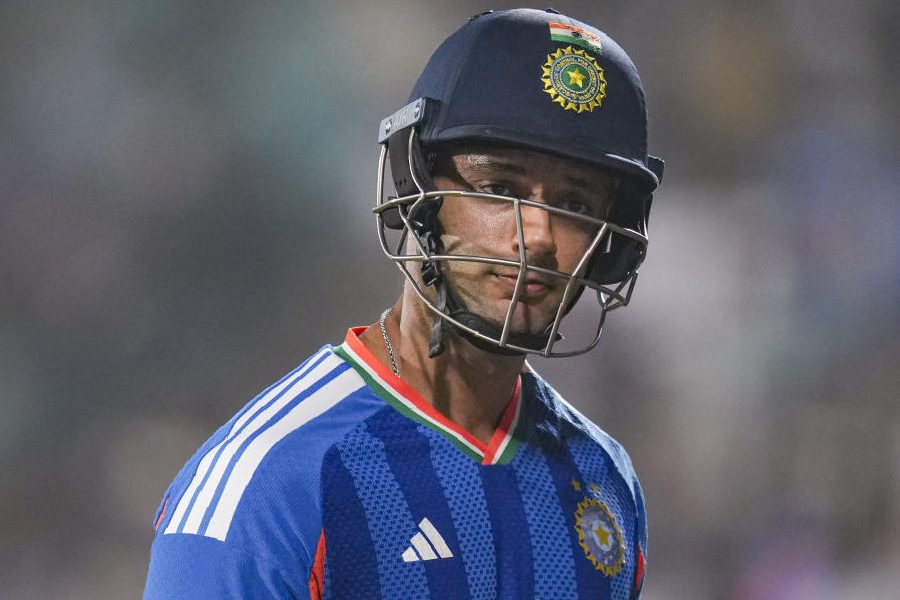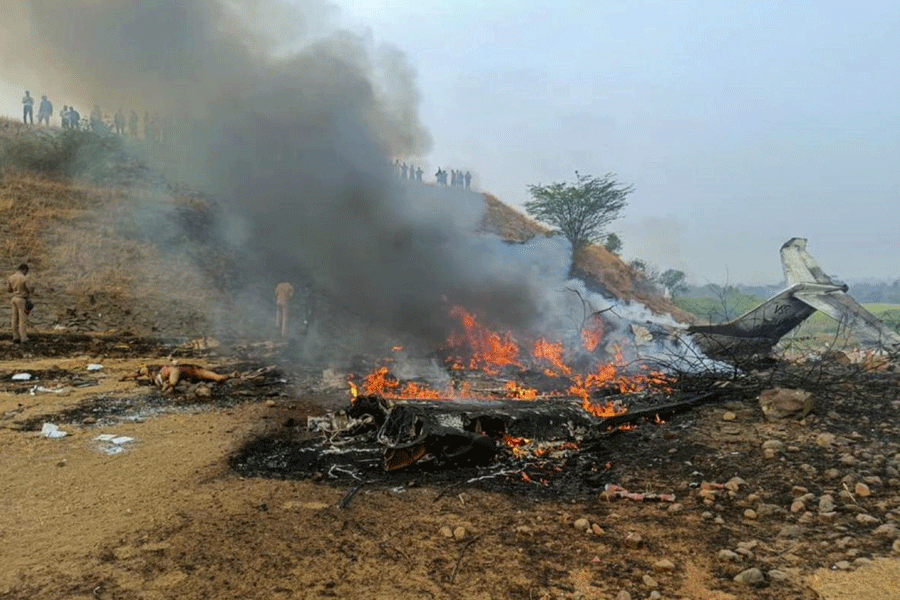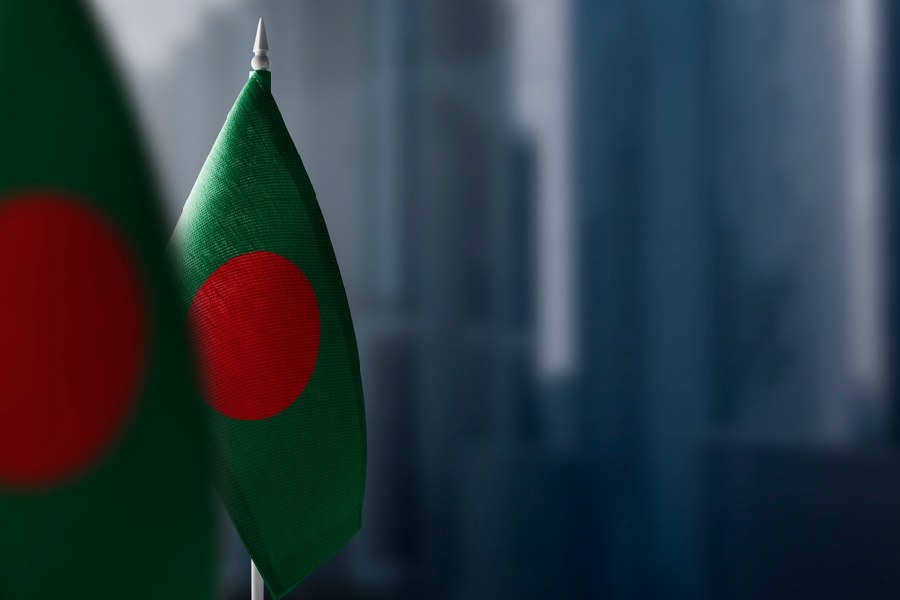
"Whichever way you look at it, a pig's head is a pig's head," Parmjit Dhanda said. "I was face-to-face with it."
The day had started as an ordinary Sunday for the former Labour MP for Gloucester, then 38. His wife, Rupi, was having a lie-in and he was making breakfast for his two boys, one-year-old Max and four-year-old Zac. At 8.15am there was a knock on the door. Immediately, he knew that something was wrong. Who would come this early on a Sunday? He wasn't even their MP anymore.
Standing outside was a middle-aged lady with a dog. She was trembling. The dog was pulling at the leash, trying to drag her away.
"They've left something terrible for you behind your car," she managed to say.
The rest of the morning was a blur. Stepping out in his dressing gown, Dhanda saw the object. It was the severed head of a pig. Soon the police cars were in the drive, the head was taken away, and the press was calling him incessantly. All he could remember was thinking that it was lucky his boys had not seen it.
"That was a turning point for me," Dhanda, 43, recalled. "I felt angry and sad at the same time. I felt I'd been their MP for nine years - the late nights, the meetings with constituents, the businesses and hospitals that I built in the area... everything I had done for them. And they gave me this. They hadn't even got it right. I was a Sikh, not a Muslim, so the pig's head was not the most offensive thing they could send. But that was hardly important. This was not England in the Sixties. This was 2010. Besides, my Punjabi pride had been hurt."
In December that year, Dhanda decided to quit politics. He moved out of Gloucester to a leafy suburb of London. Though still affiliated to the Labour Party, he did not stand for the 2015 elections.
Instead he wrote his memoirs - My Political Race, An Outsider's Journey to the Heart of British Politics - the first book written by an Indian-origin MP that reveals the struggles faced in the hallowed surrounds of Westminster Palace.
Dhanda was a reluctant writer. His initial reaction after the 2010 incident was not to talk to the media. "I didn't want to be the person who was complaining about racism," he said. "I had achieved something that was beyond my dreams. I didn't want to whinge. But eventually, I did write about it. I think it was a healing process."
The book was not merely about being a "victim". It was, he said, a celebration of his journey from a working-class upbringing in Southall to becoming the first Asian minister in the Labour government.
Born in Hillingdon in west London, in the same hospital where his mother worked as a cleaner, Dhanda is proud of his humble origins. His father worked in a factory and then became a truck driver.

"My mother could speak three words of English. If anyone passed a racist comment at her, she would push the mop at them and say, 'You do it'. That would stop them. She was noticed for her spirit and asked to join the union, which sent her for English classes."
With both parents active in trade unions - his father was with the Indian Workers' Association - the Labour Party was the natural choice for Dhanda. After graduating from Nottingham University, he volunteered to work for the party.
In 2001 - when he was 29 - he threw his hat in the ring for selection as a Labour party candidate in Gloucester, a white-majority area. He remembered having to battle with racist remarks during the campaign.
"I bet your grandfather wasn't at Dunkirk," a heckler had shouted, referring to the WWII battle where the British took heavy casualties and were forced to retreat.
"It was particularly hurtful, because my grandfather was actually with the Royal Bengal Engineers and fought for the British," Dhanda said. "I was an Asian from Southall standing to represent a cathedral city like Gloucester. It was against all odds."

But on election night in 2001, he stood on stage wearing his red rosette, as the returning officer announced that he had won the seat. It was a dream come true for the Punjabi munda from Southall.
His parents could not believe what their son had achieved. His father cried when he heard his son was going to a party in 10 Downing Street. Very quickly the young, six-footer became the poster boy of the Labour Party's multi-cultural plank.
Dhanda increased his majority in the 2005 elections, and was asked by Prime Minister Tony Blair to join the government. In 2010 he became a victim of the anti-incumbency factor and lost his seat. "As long as you are the MP, you are cushioned. When you lose, you are on your own," Dhanda said.
Did he not miss the buzz of elections and politics? "I do, of course," said Dhanda, who has now been working with trade unions. "But I think I made a decision that day. I don't rule it out, but I'm not sure that I want to go back."
There is a chapter in the book which describes how his father met Tony Blair in the toilets during an election rally in Gloucester. Aghast, Dhanda asked his father what he had said to the then Prime Minister. He replied that he'd given Blair a hug. "At least he didn't show him any pictures of me as a kid," said a relieved Dhanda.
If Bollywood is looking for a story set in the shadow of Big Ben, there is definitely one in the life of the ex-MP. "I was the son of a cleaner who made it to Parliament. I want my life to be made into a Bollywood film," he laughed.
My Political Race, An Outsider's Journey to the Heart of British Politics (Biteback Publishing) is available on Kindle from the Biteback Books website

